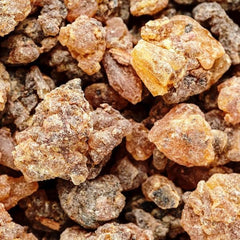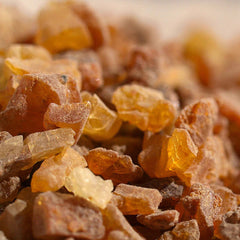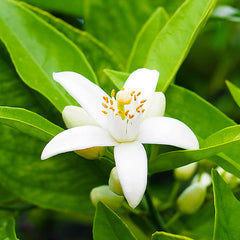Do Oriental Perfumes Contain Musk?
Click For Affordable Inspired Perfume Alternatives
Oriental perfumes have long captivated fragrance enthusiasts with their rich, warm, and exotic scent profiles. Originating from the ancient civilizations of the Middle East and Asia, these perfumes are renowned for their complex blends, often incorporating a variety of aromatic ingredients that evoke mystery and luxury. Among the many components that contribute to the allure of oriental perfumes, musk stands out as a highly valued and sometimes misunderstood ingredient. Many perfume lovers wonder whether musk is a common ingredient in these fragrances and what role it plays in creating the signature scent of oriental perfumes. In this article, we will explore the presence of musk in oriental perfumes, its types, and the reasons behind its widespread use or absence.
Do Oriental Perfumes Contain Musk?
Oriental perfumes frequently contain musk, but the specifics depend on the type of musk used—natural or synthetic—and the formulation preferences of the perfumer. Musk is a key ingredient in many traditional oriental fragrances because of its unique olfactory qualities and ability to enhance other scent components. However, the use of natural musk, derived from the glands of certain animals, has declined significantly due to ethical concerns and legal restrictions, leading to a predominance of synthetic musk in modern formulations.
The Role of Musk in Oriental Perfumes
Musk serves several vital functions when incorporated into oriental perfumes:
- Fixative: Musk acts as a fixative, helping to stabilize volatile aromatic compounds and prolong the longevity of the fragrance on the skin. This is particularly important for oriental perfumes, which are known for their deep and long-lasting scents.
- Base Note: Musk is typically used as a base note, providing a warm, sensual foundation that supports the more fleeting top and middle notes like spices, florals, and resins.
- Enhancer: It amplifies the richness and depth of other ingredients, making the overall scent more complex and layered.
- Characteristic Sillage: Musk contributes to the distinctive sillage or scent trail that oriental perfumes are famous for, leaving a lasting impression.
Natural vs. Synthetic Musk in Oriental Perfumes
Historically, natural musk was obtained from the musk deer, specifically from the gland called the musk pod. This natural musk was highly prized for its potent and authentic aroma. However, due to the decline in musk deer populations and strict international regulations like the Convention on International Trade in Endangered Species of Wild Fauna and Flora (CITES), natural musk has become rare, expensive, and ethically questionable.
As a result, most modern oriental perfumes rely on synthetic musks, which are lab-created compounds designed to mimic the scent profile of natural musk. These synthetic musks are classified into several categories:
- Polycyclic Musks: Such as galaxolide and tonalide, known for their strong, persistent scent and affordability.
- Nitro Musks: An older class of synthetic musks, now less commonly used due to environmental and health concerns.
- Polymer Musks: Modern, less allergenic options that provide a clean musk aroma.
Most contemporary oriental perfumes use these synthetic alternatives, which are safe, sustainable, and capable of replicating the warm, sensual qualities of natural musk.
Are There Natural Musk-Free Oriental Perfumes?
Yes, some perfume brands formulate musk-free oriental fragrances, especially those aimed at consumers seeking vegan or cruelty-free options. These perfumes use alternative fixatives and base notes, such as ambroxan, cashmeran, or other aromatic compounds, to achieve the same depth and longevity without using any musk ingredients. These fragrances often emphasize other traditional oriental elements like amber, frankincense, myrrh, and spices.
Why Is Musk Important in Oriental Perfumes?
Musk’s significance in oriental perfumes can be summarized as follows:
- Creates Warmth and Depth: Musk imparts a warm, sensual quality that is characteristic of oriental scents.
- Enhances Longevity: Its fixative properties help the fragrance last longer on the skin.
- Contributes to Sillage: Musk’s lingering aroma makes oriental perfumes memorable and distinctive.
- Associative Qualities: Musk is often linked to feelings of comfort, sensuality, and intimacy, aligning with the mood of many oriental fragrances.
Common Ingredients in Oriental Perfumes Aside from Musk
While musk is a common component, oriental perfumes are known for their rich blend of ingredients, including:
- Resins: Such as frankincense, myrrh, and benzoin, providing a balsamic and woody aroma.
- Spices: Including cinnamon, cardamom, and clove, adding warmth and complexity.
- Amber: Offering a sweet, honeyed depth to the scent profile.
- Vanilla: Contributing a creamy, comforting sweetness.
- Oud: A precious resin with a deep, woody, and smoky scent, often used in Middle Eastern perfumery.
These ingredients, combined with musk, create the opulent and layered character typical of oriental perfumes.
Conclusion: The Presence of Musk in Oriental Perfumes
In summary, musk is a fundamental ingredient in many traditional and modern oriental perfumes due to its warm, sensual aroma and fixative properties. While natural musk was historically prized, the shift toward synthetic alternatives has become the norm, ensuring ethical and sustainable production. Today, whether natural or synthetic, musk continues to play a vital role in shaping the luxurious, long-lasting, and memorable scents associated with oriental fragrances. For consumers seeking vegan or musk-free options, numerous alternatives are available that replicate the depth and warmth of musk without using animal-derived ingredients.
Ultimately, musk’s presence in oriental perfumes underscores its enduring appeal and significance in creating captivating, exotic scents that stand the test of time. Whether you prefer traditional formulations or modern innovations, musk remains an essential component in the world of oriental perfumery, offering a signature warmth and allure that defines this timeless genre.
Buy Perfumes - Best Online Retailers
Click For Affordable Inspired Perfume Alternatives
Click For The Best Niche Perfumes & Decants
Pheromone Perfumes - Confidence, Attraction & Appeal - Click For More
Home Fragrances & Candle Warmers - Click To Scent Up Your Spaces Today!



